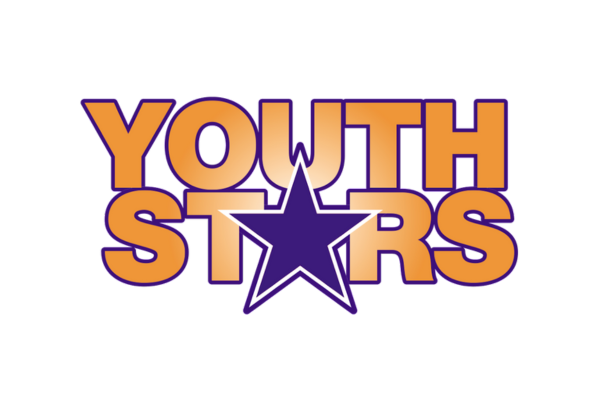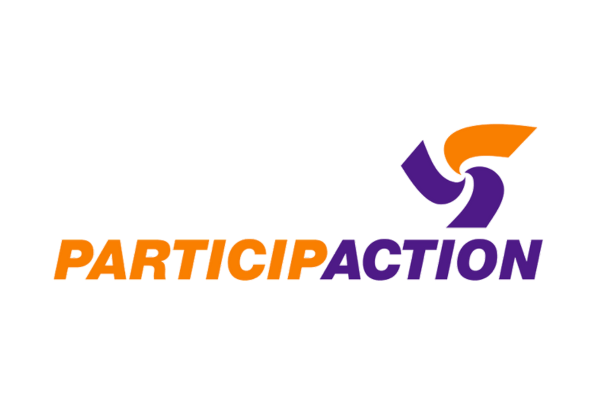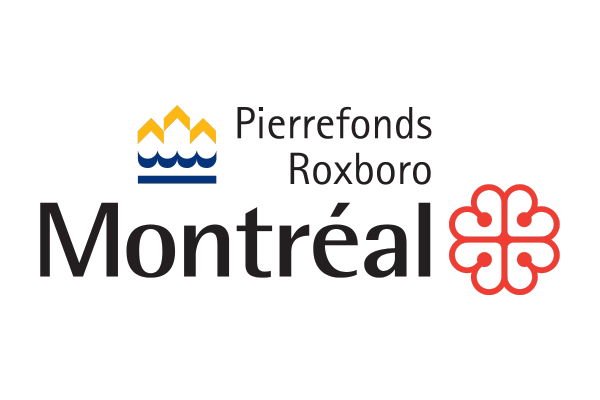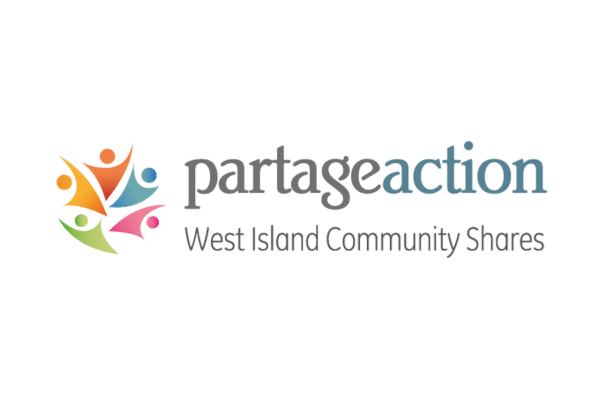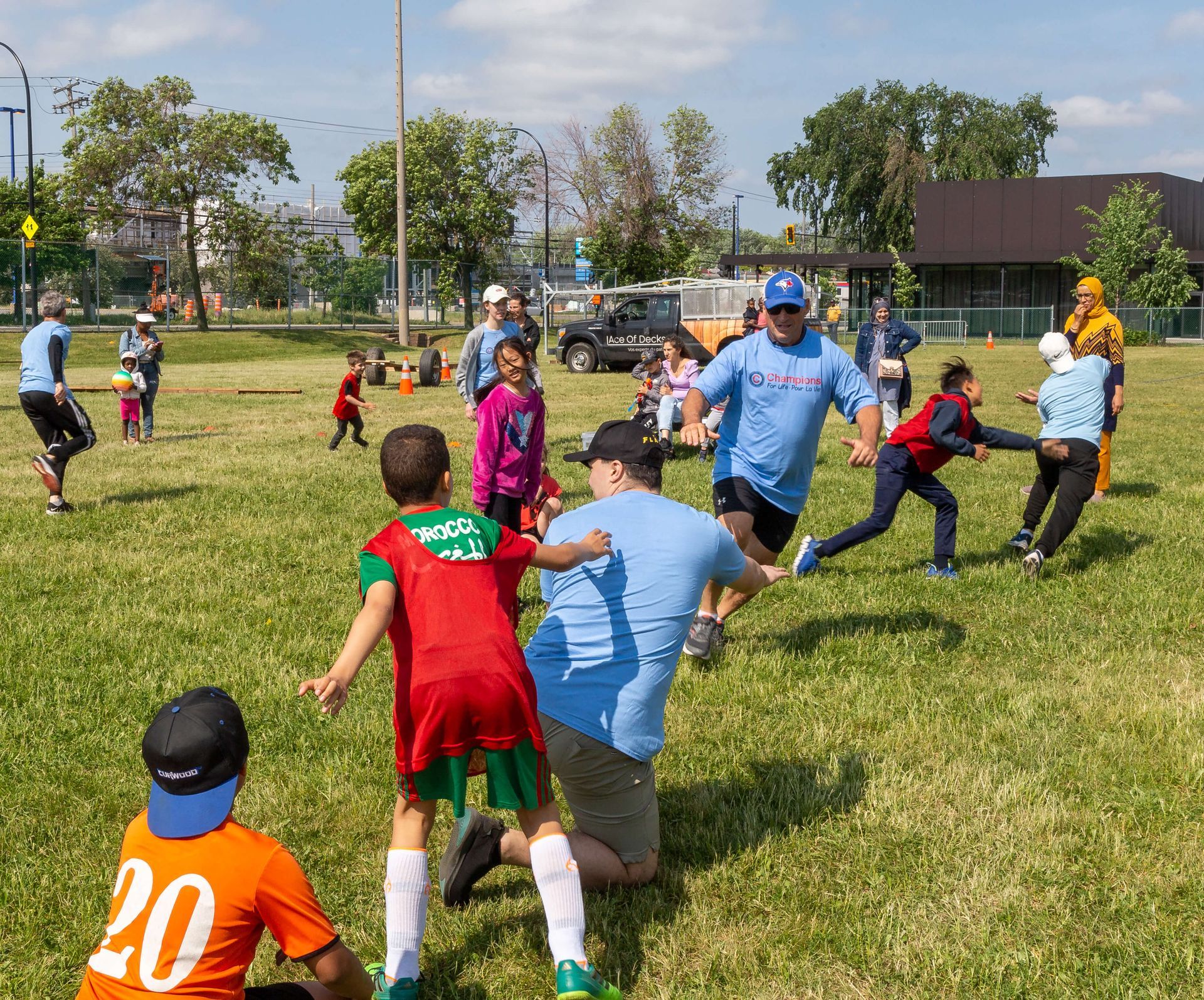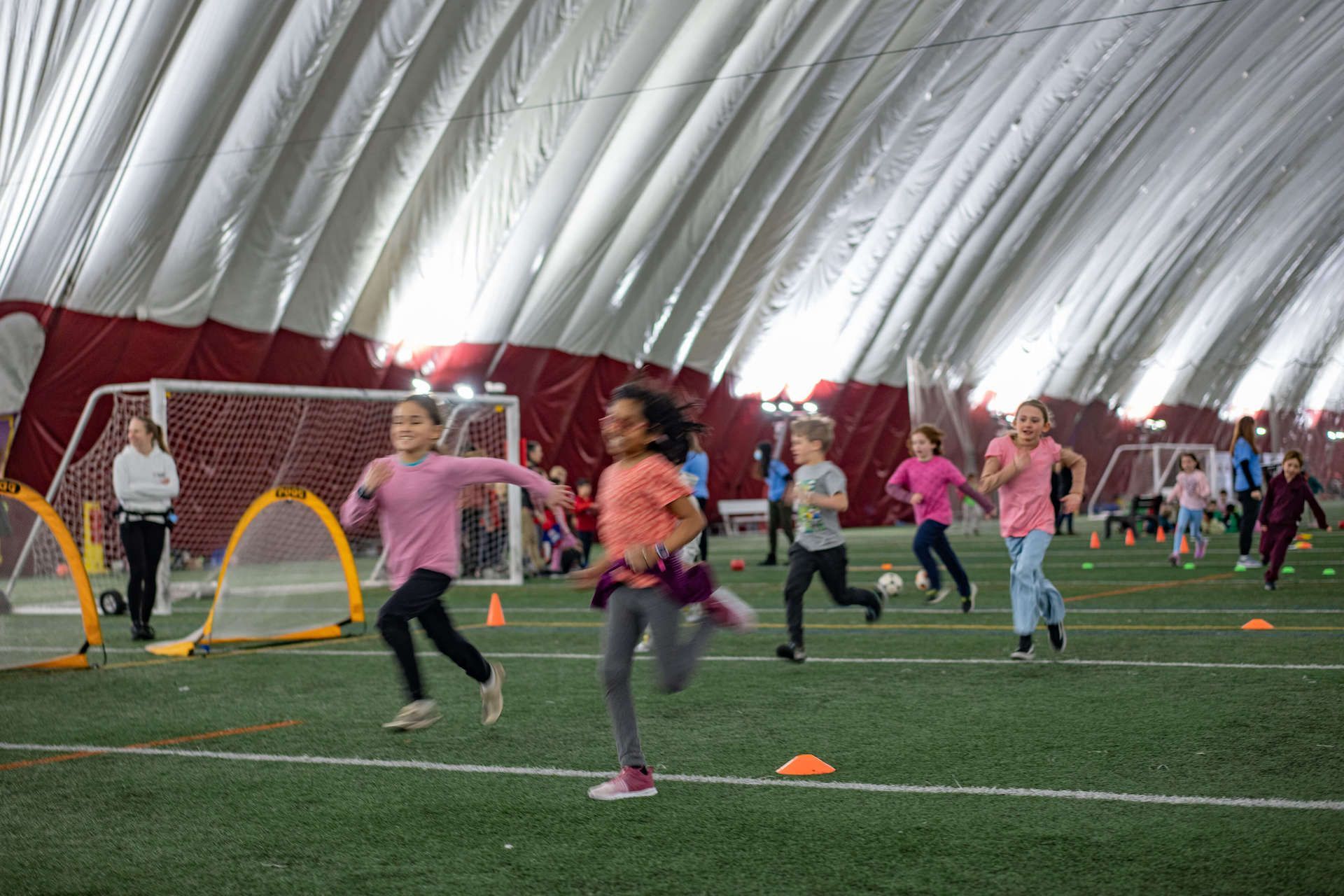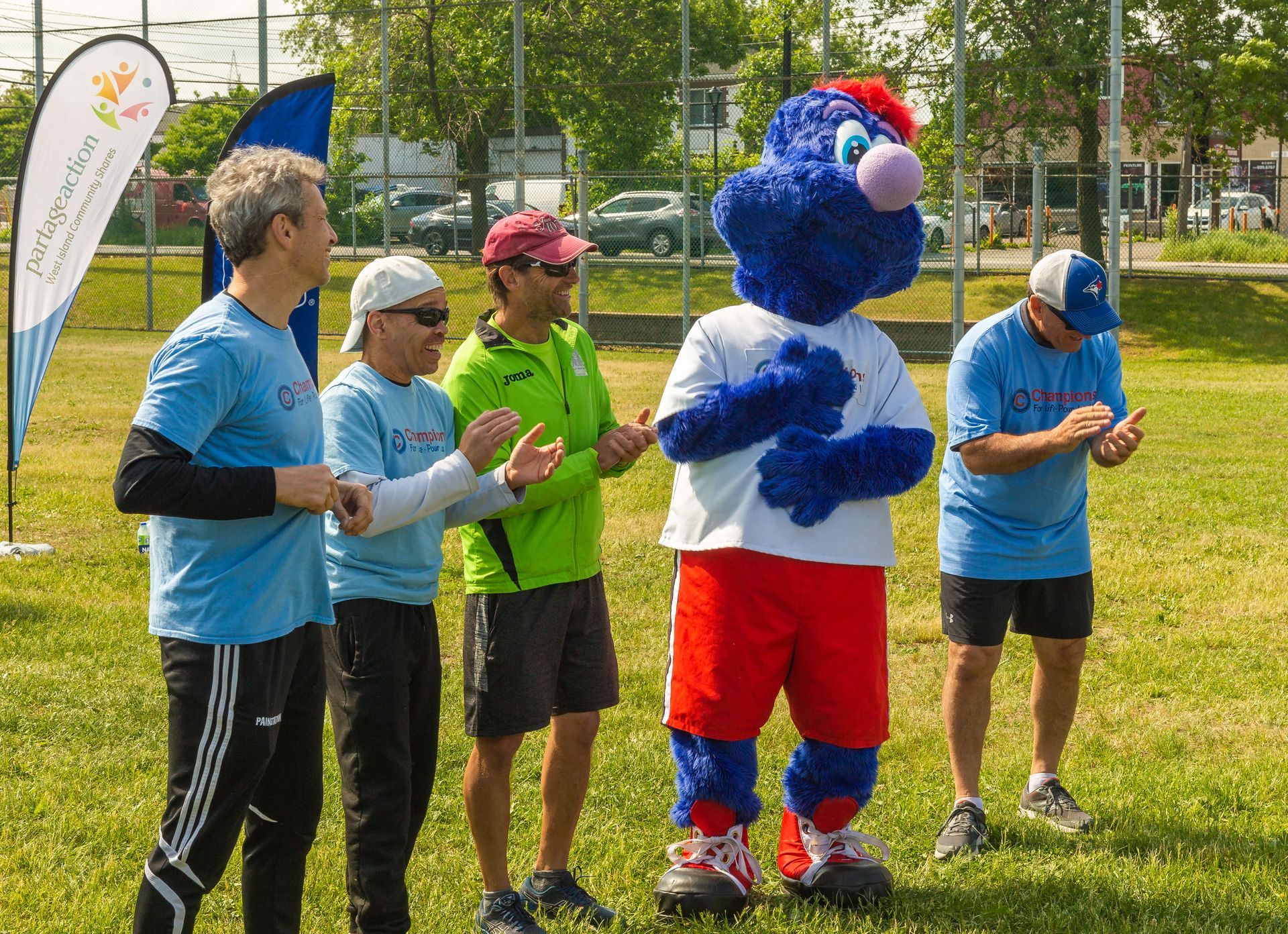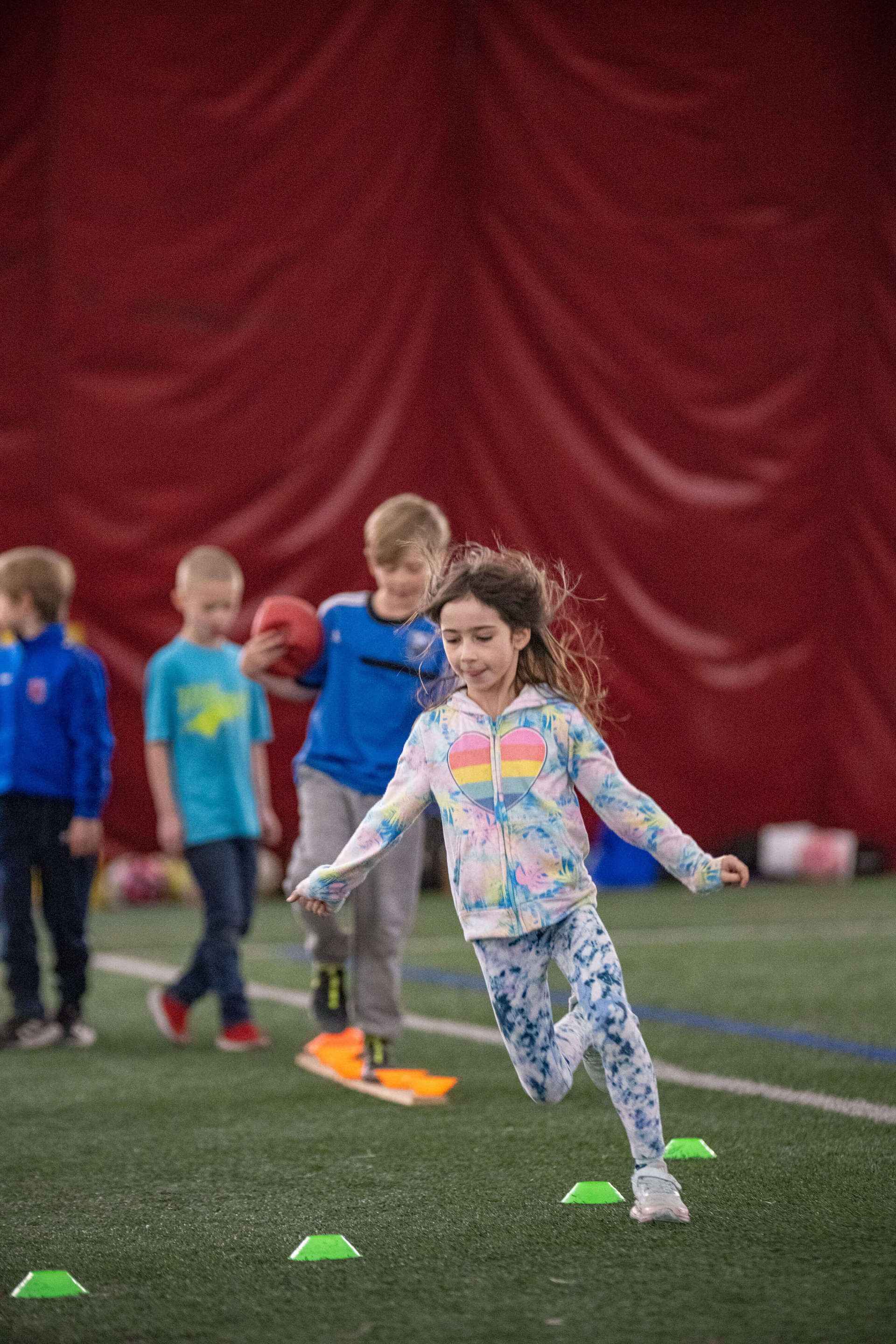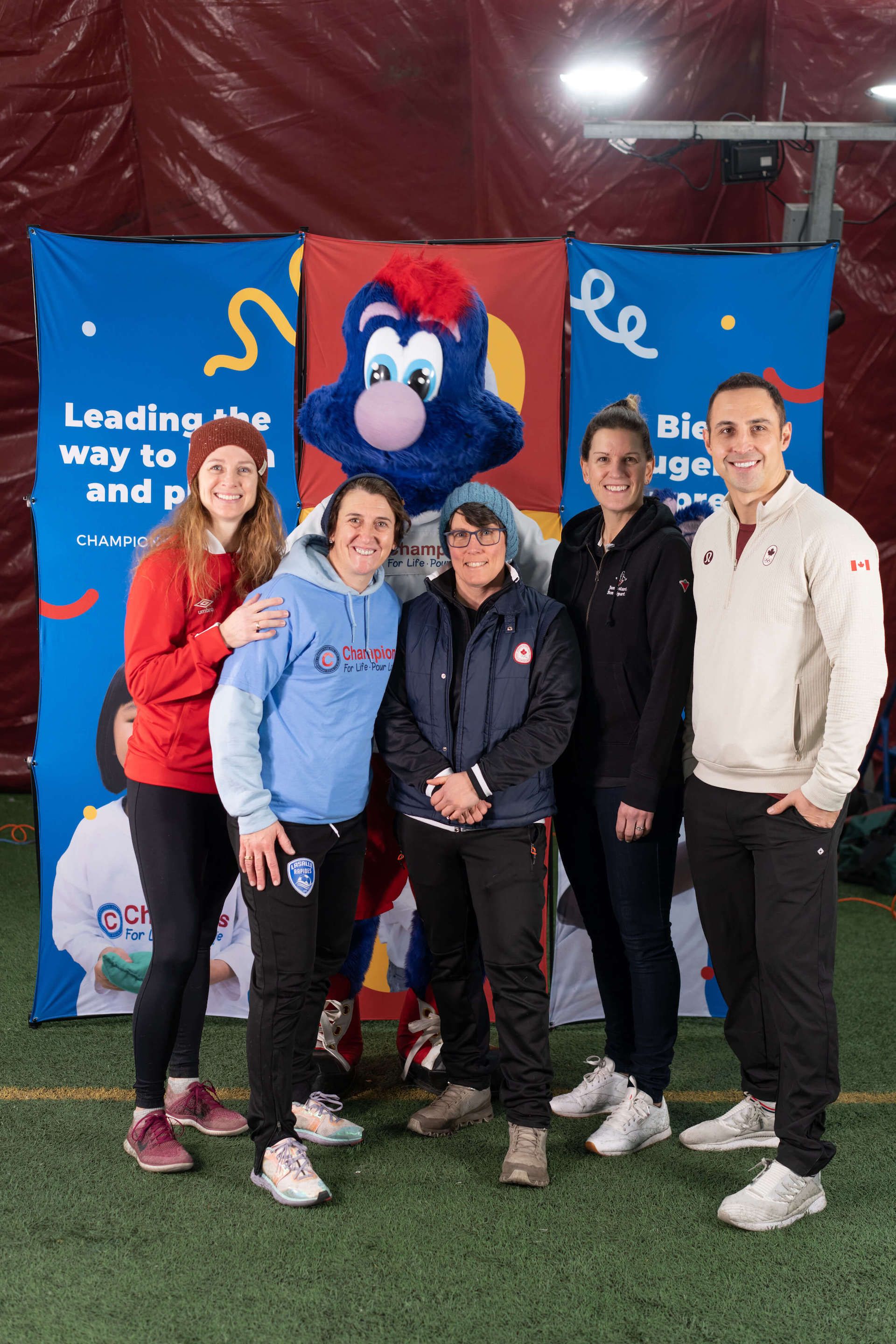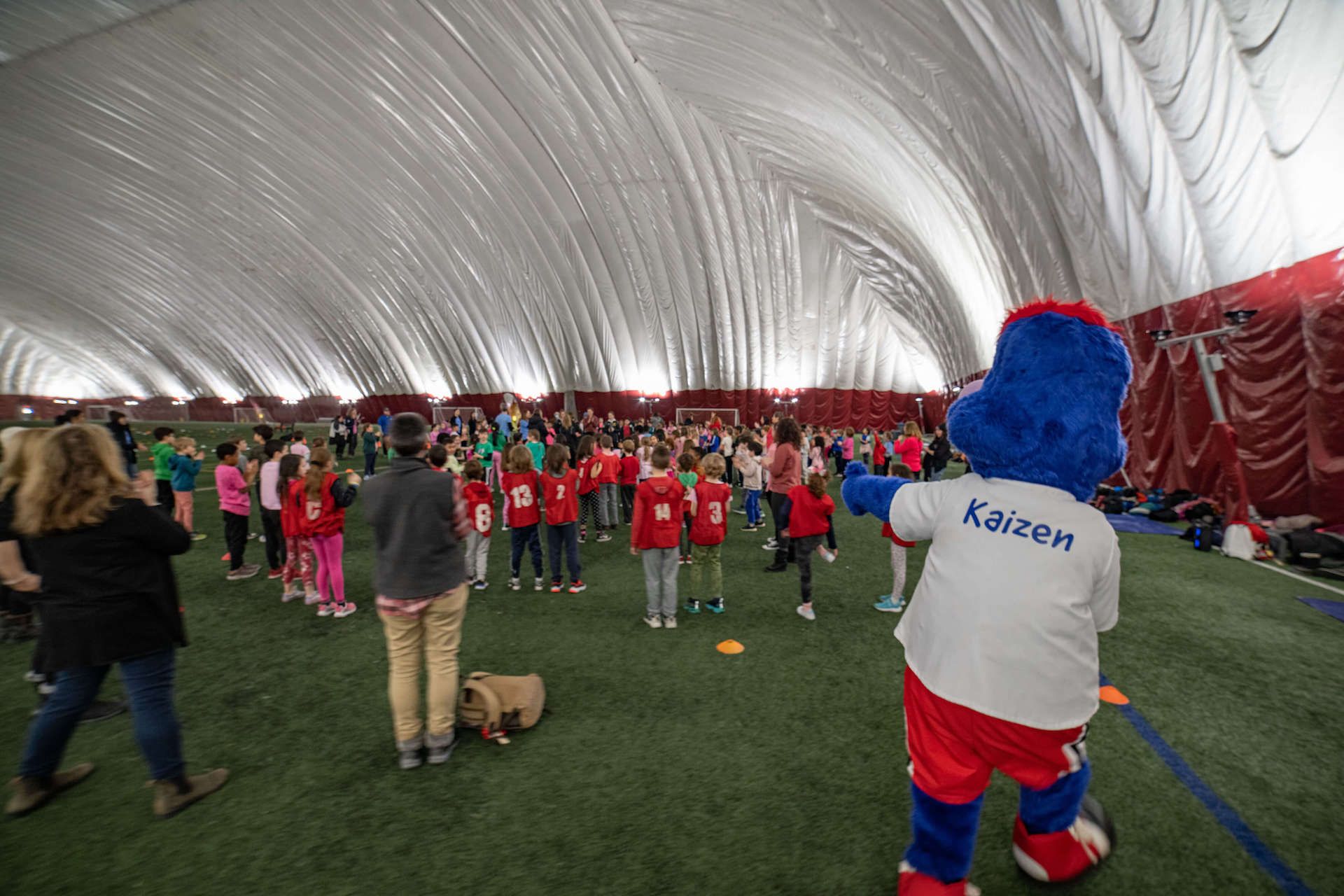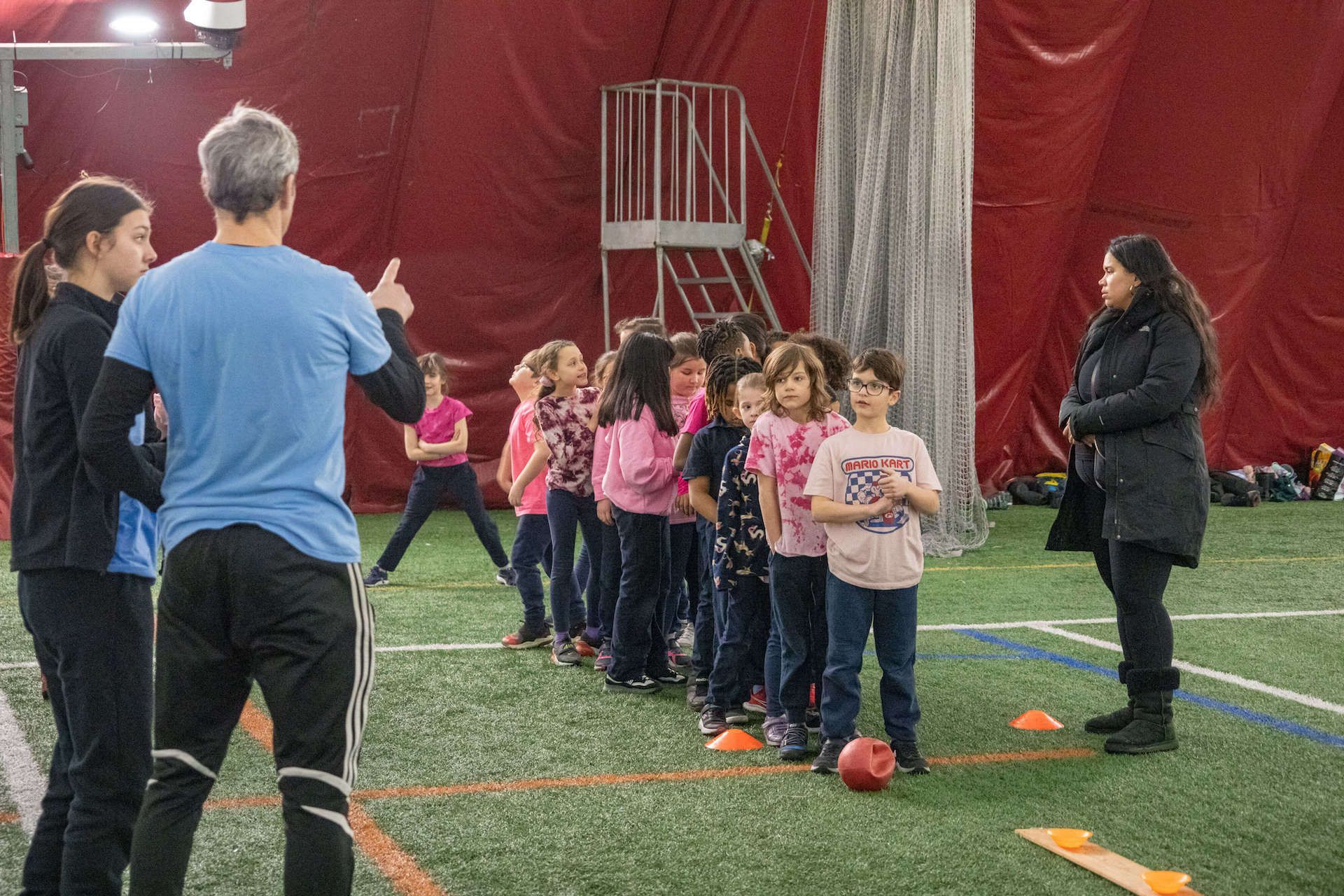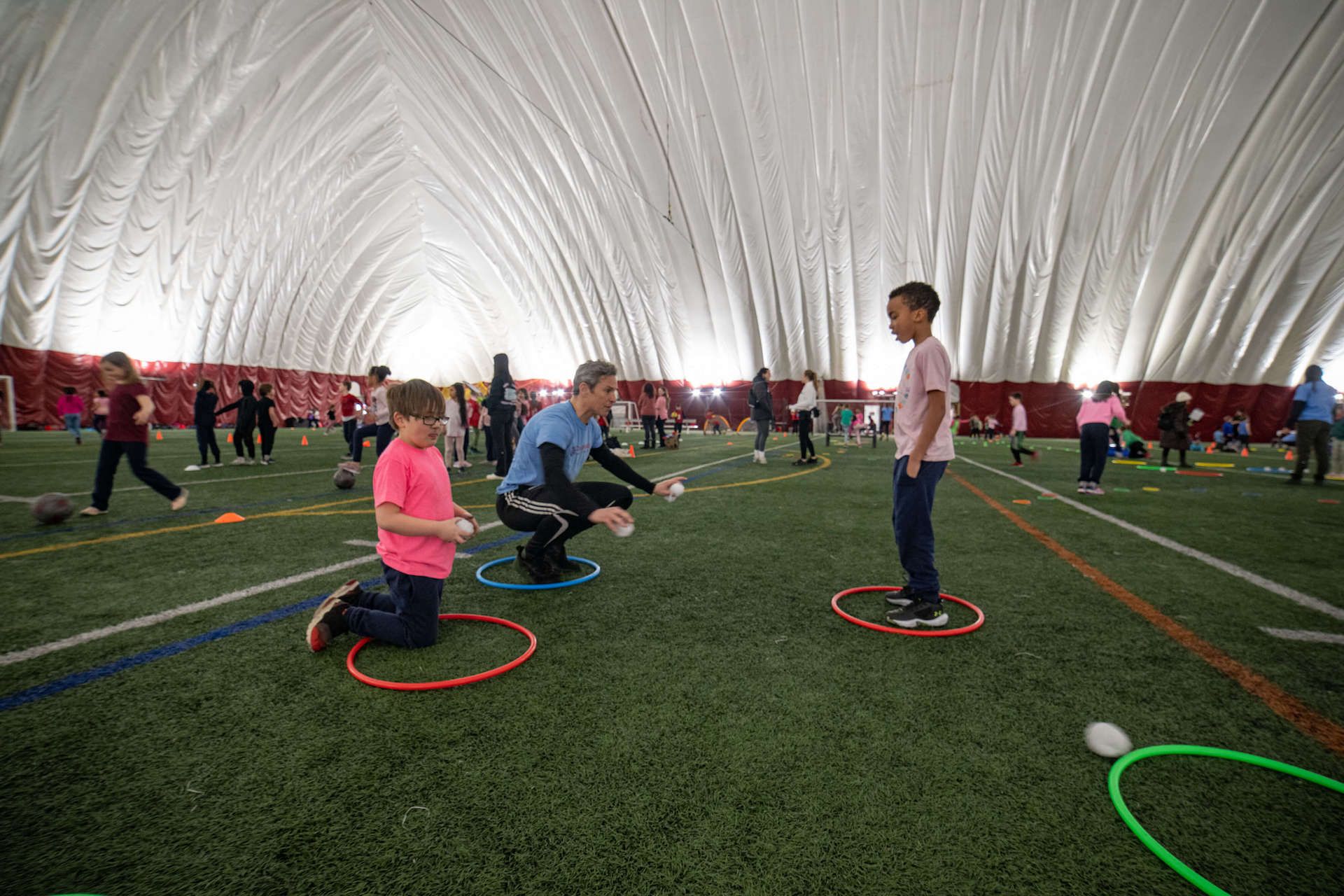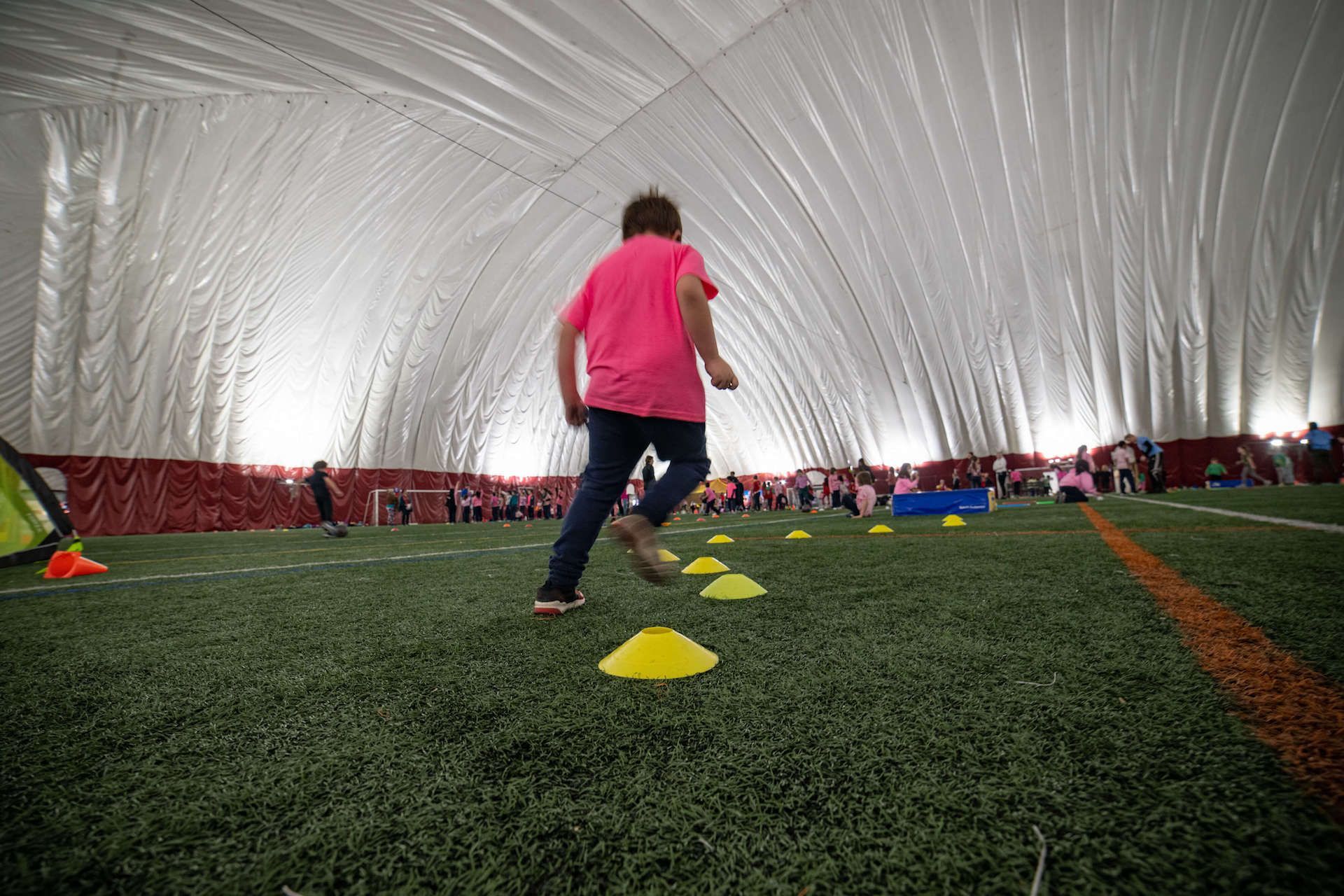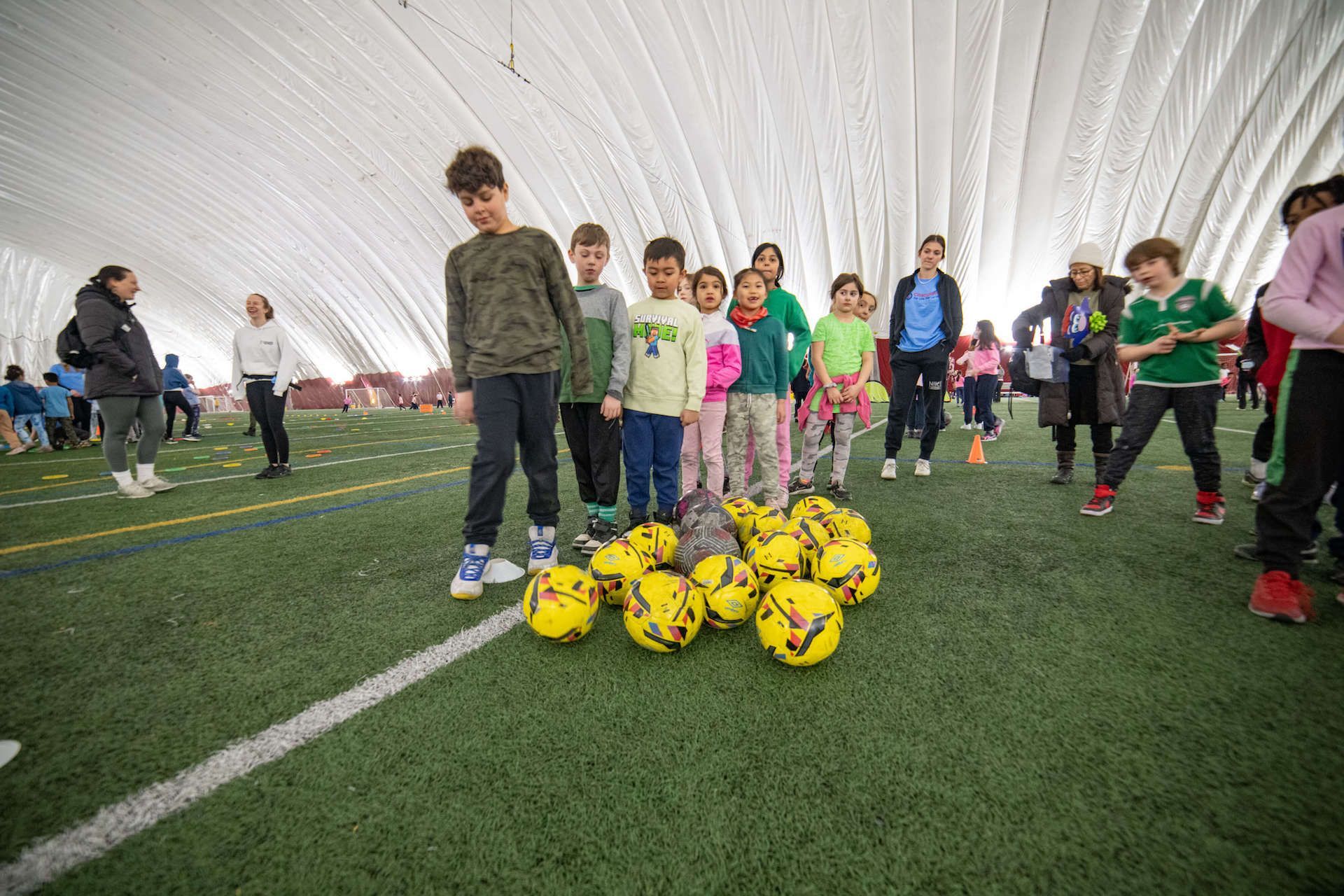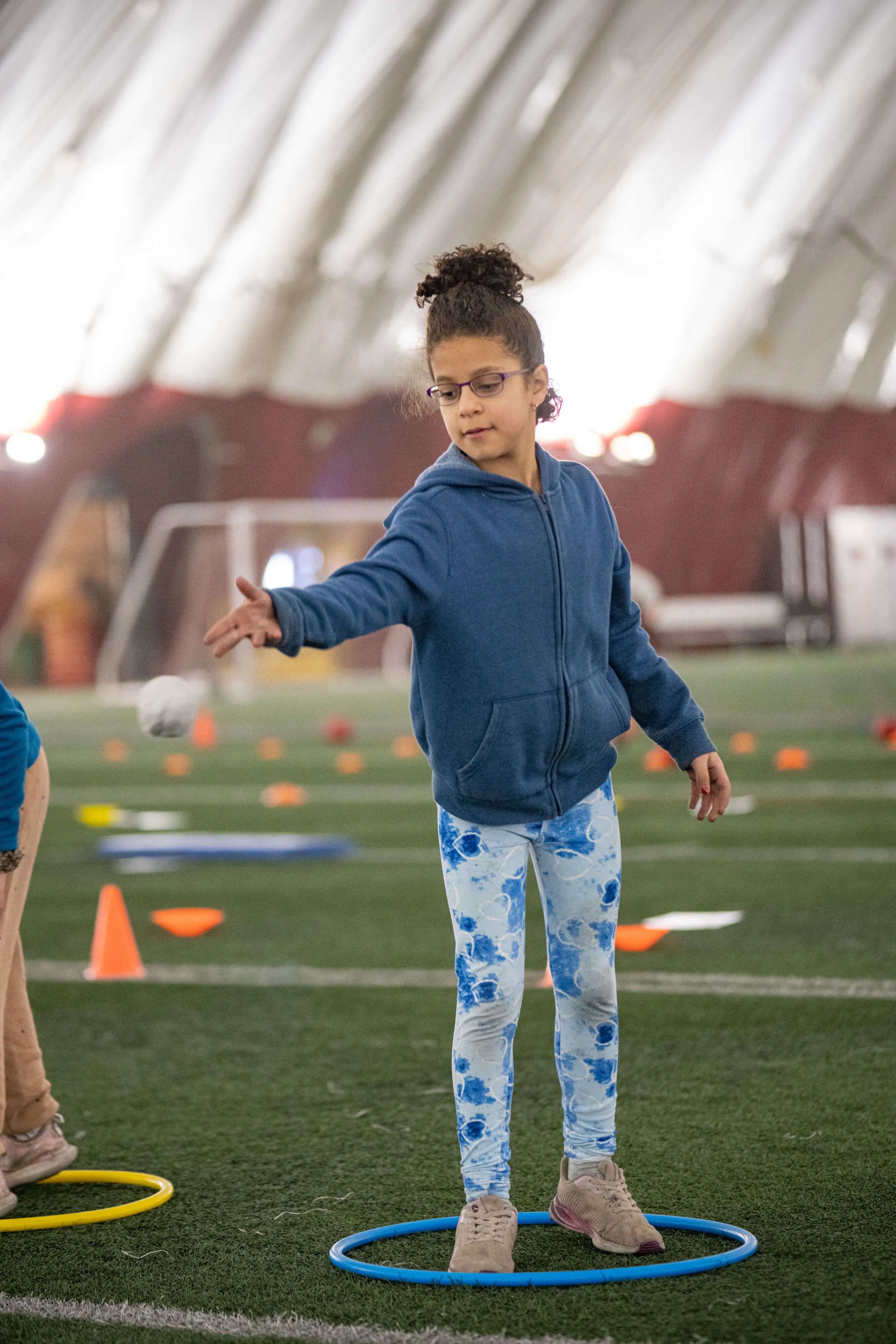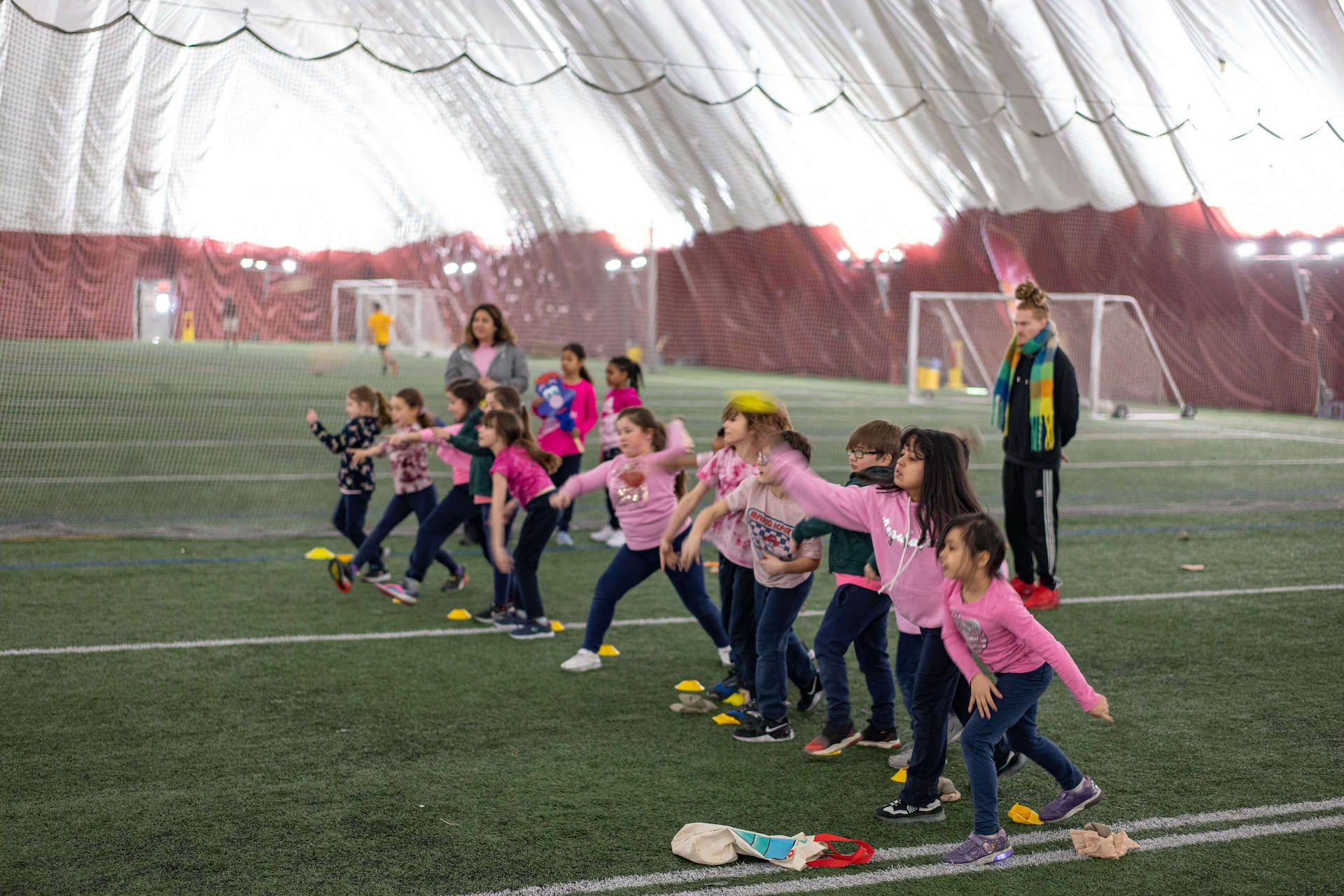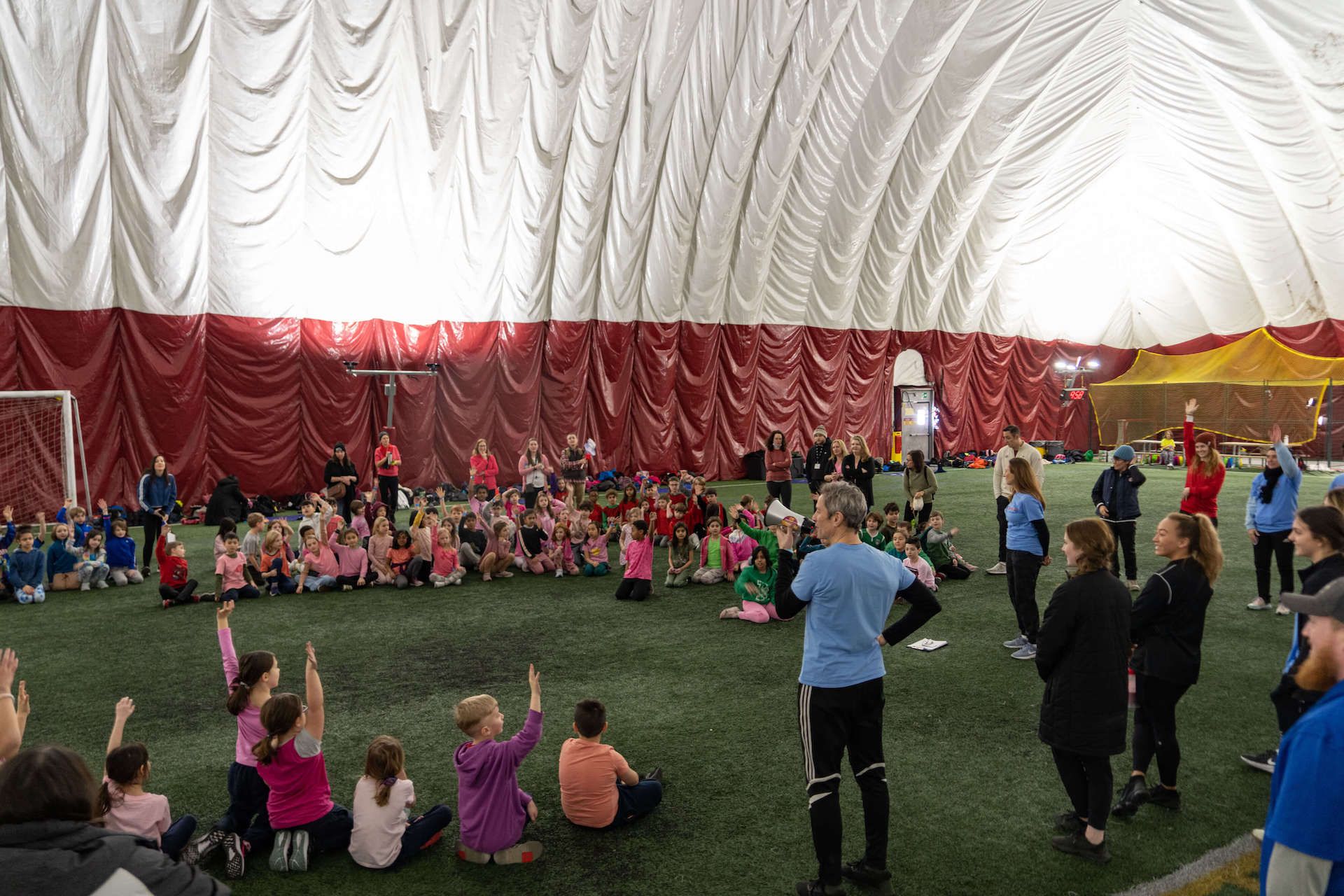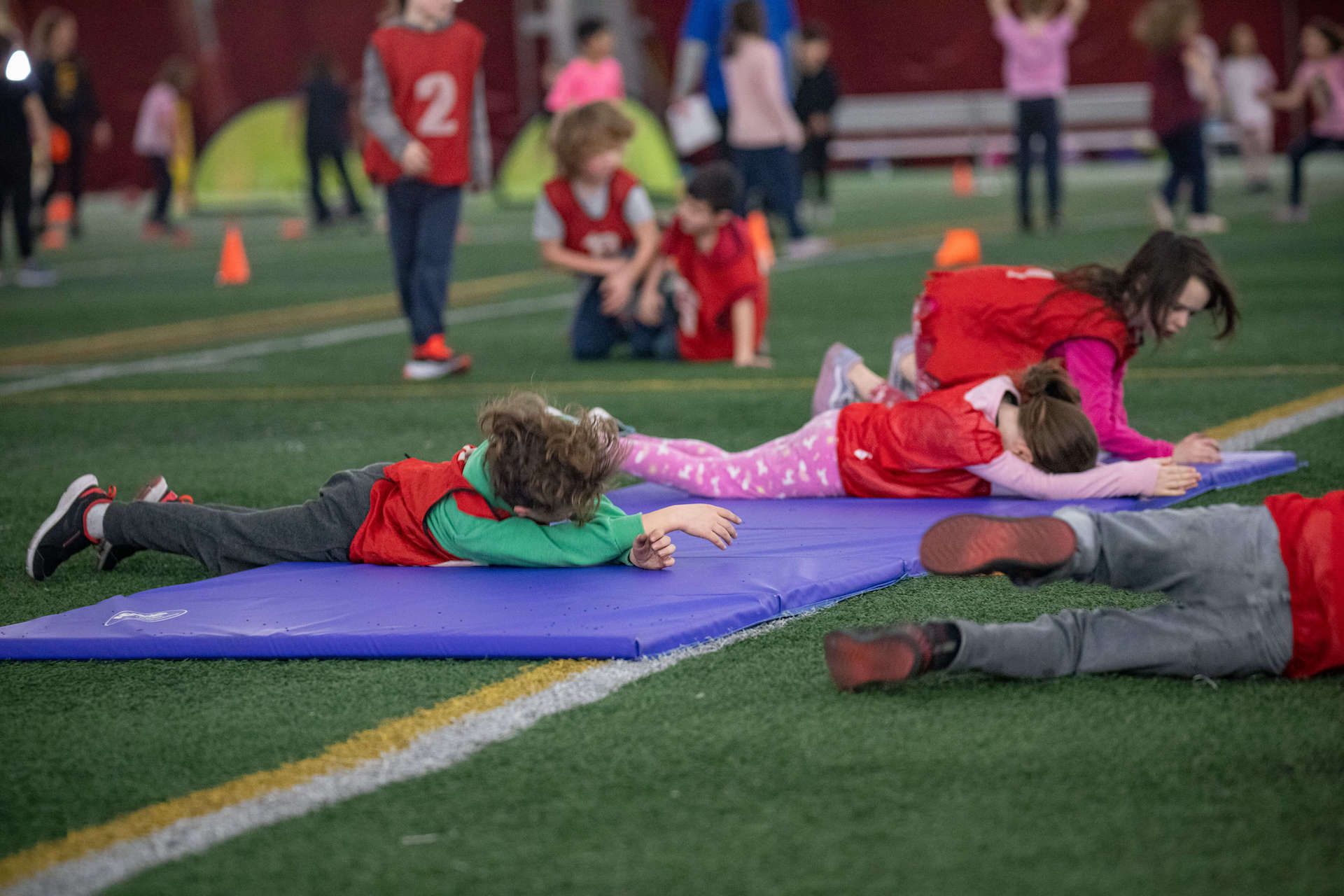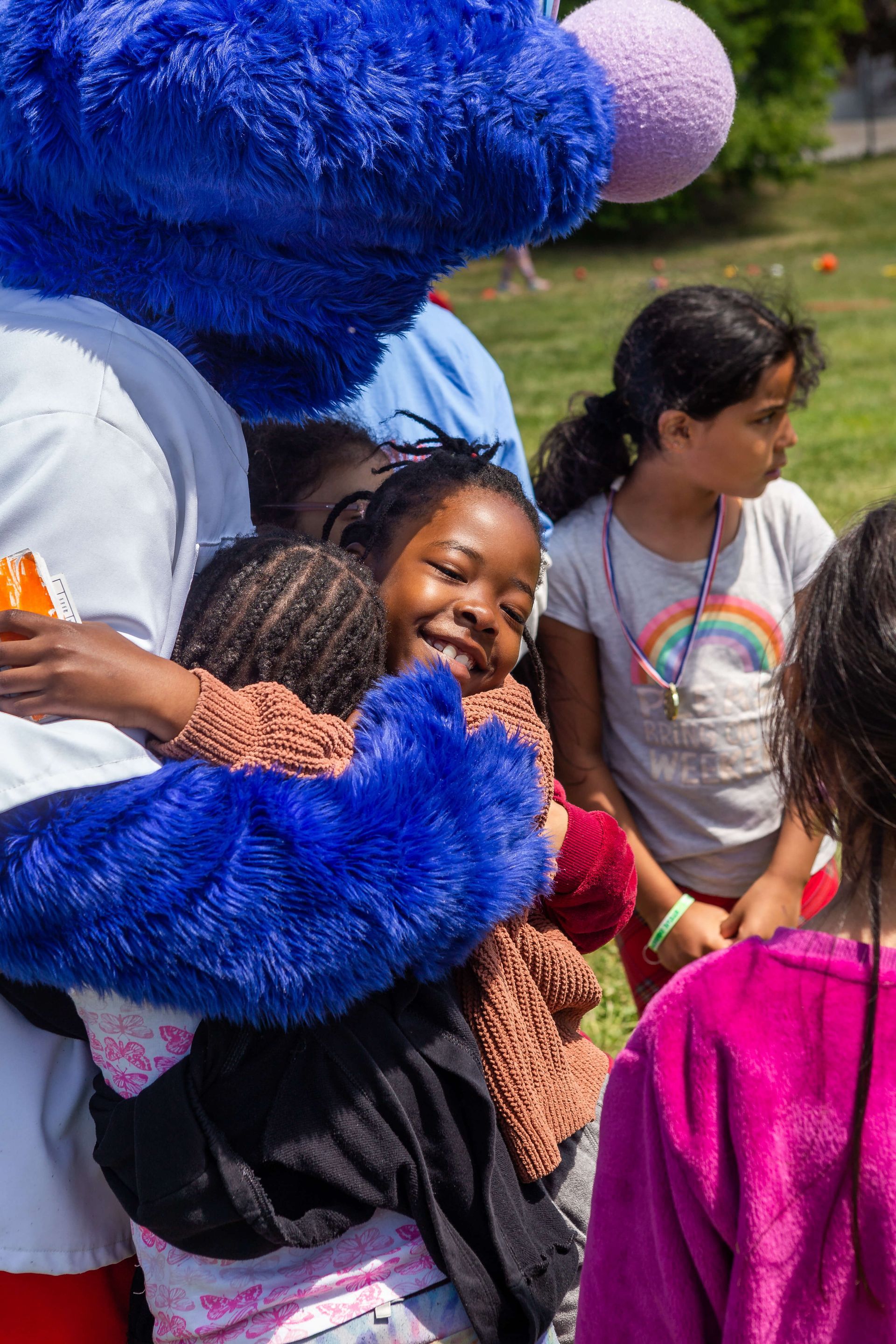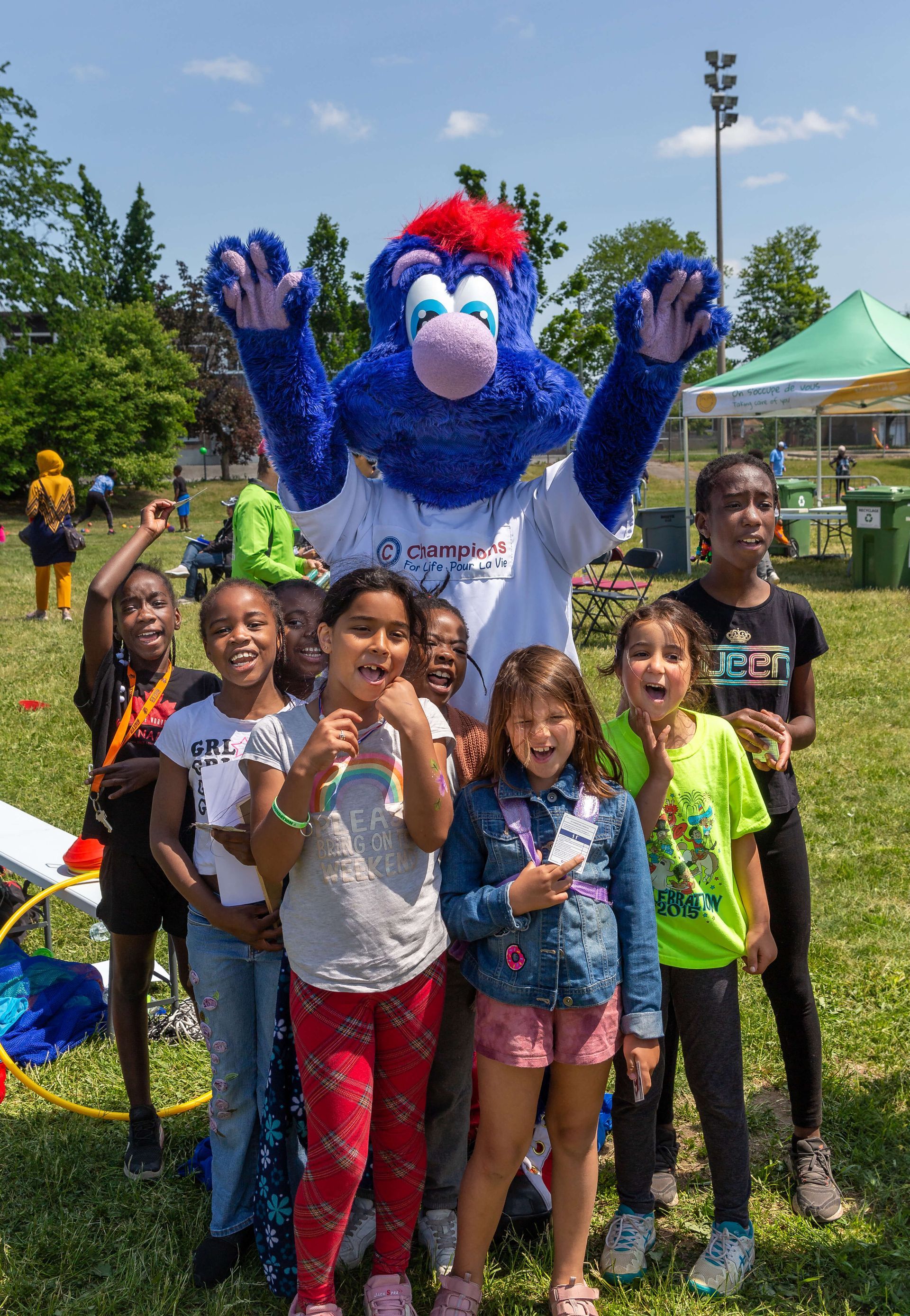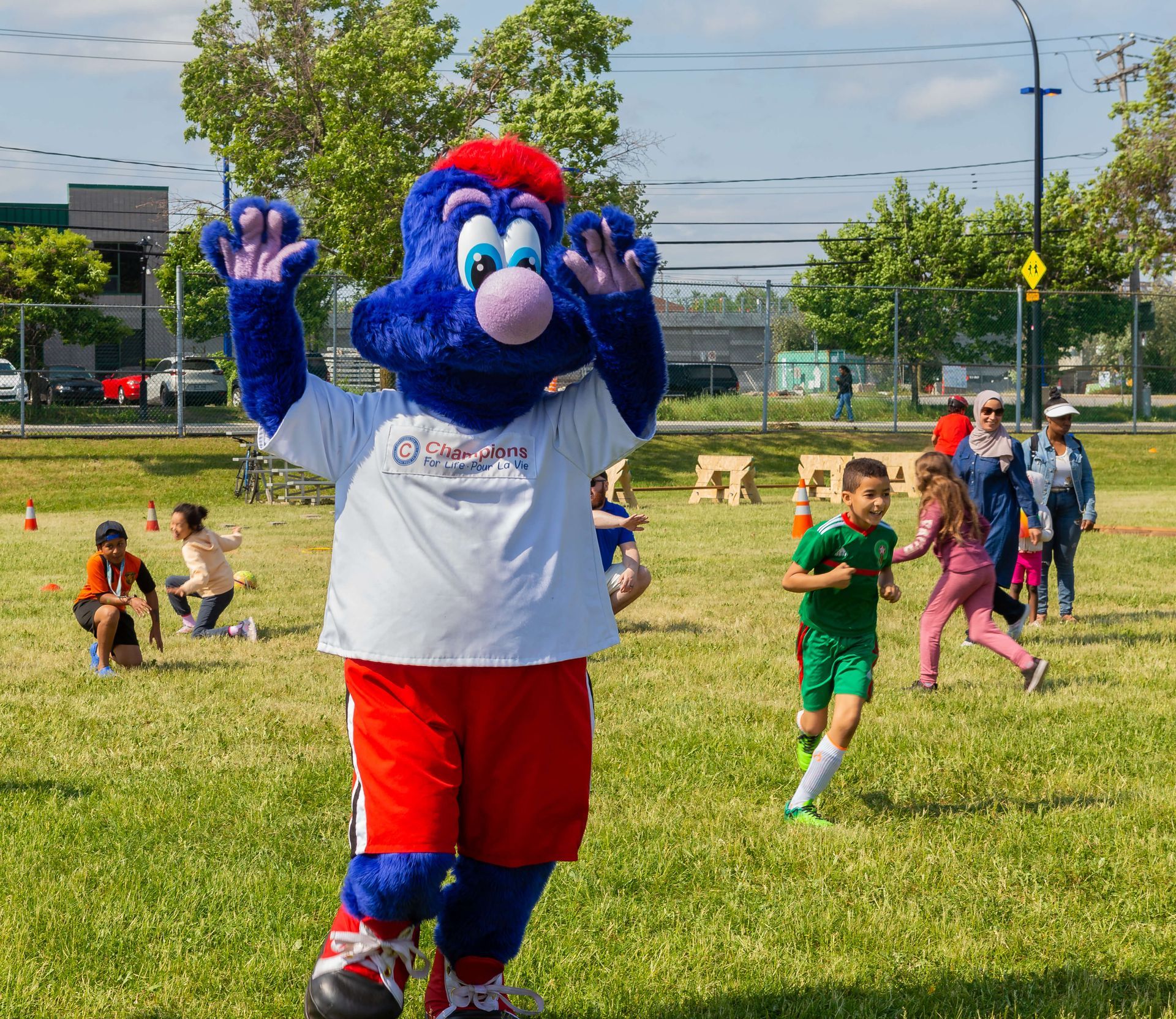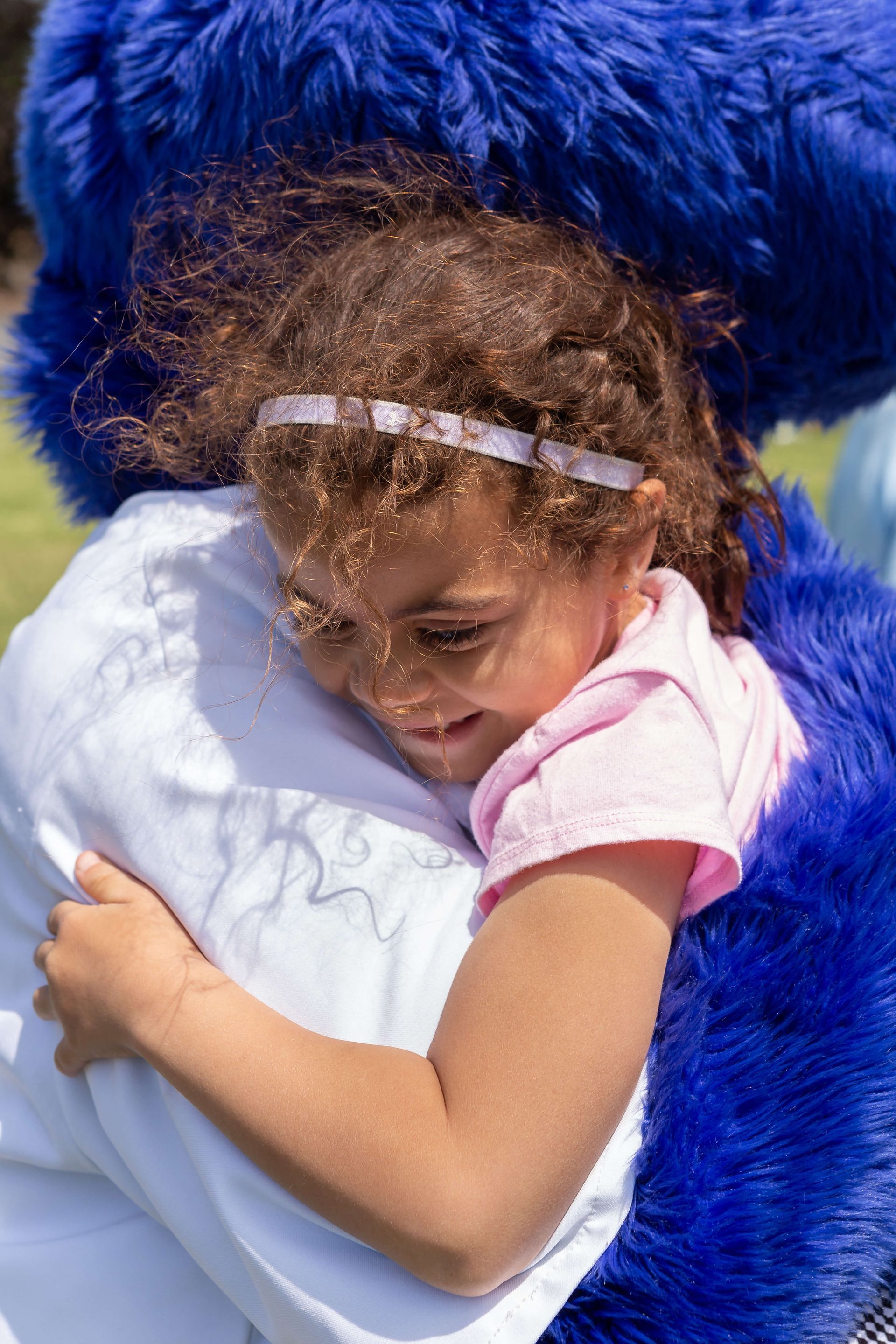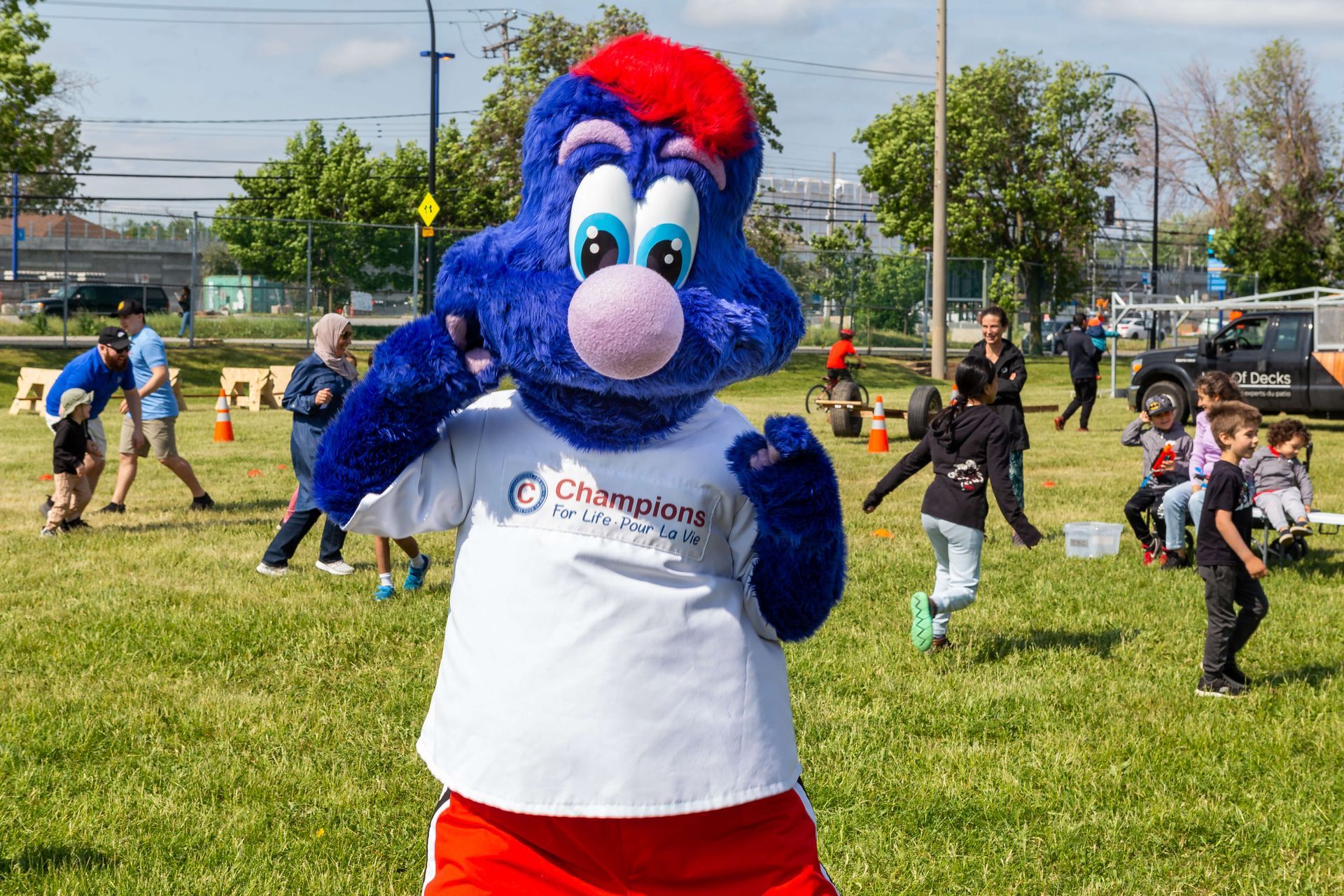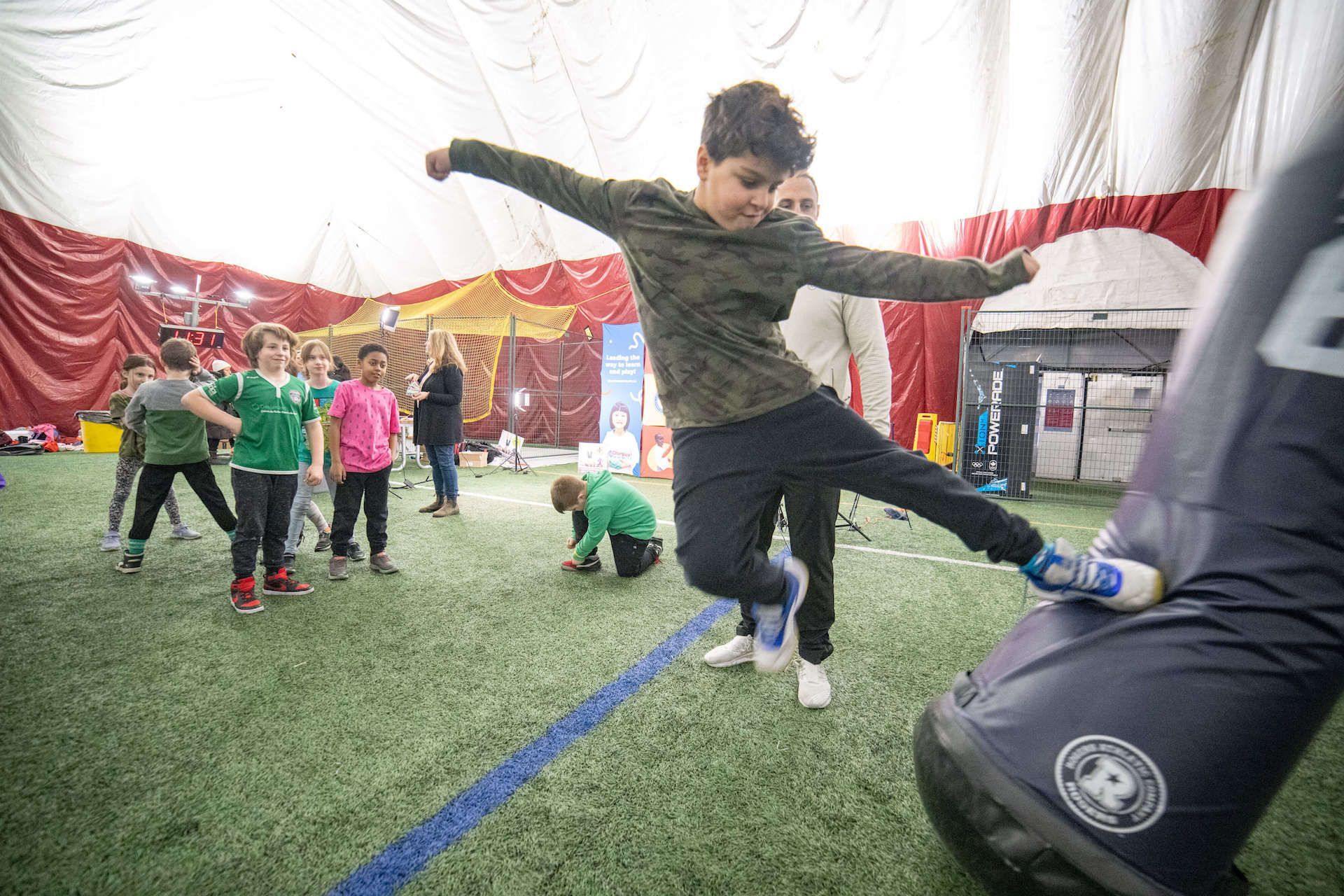Join Us for Our Annual KAIZEN Kids Carnival
On Sunday, June 2nd, 2024
- The Champions for Life
and Youth Stars Foundations are eager to welcome children ages 4-12 and their families to our FREE KAIZEN Kids Carnival at Parc d’À-Ma-Baie in the Borough of Pierrefonds-Roxboro.
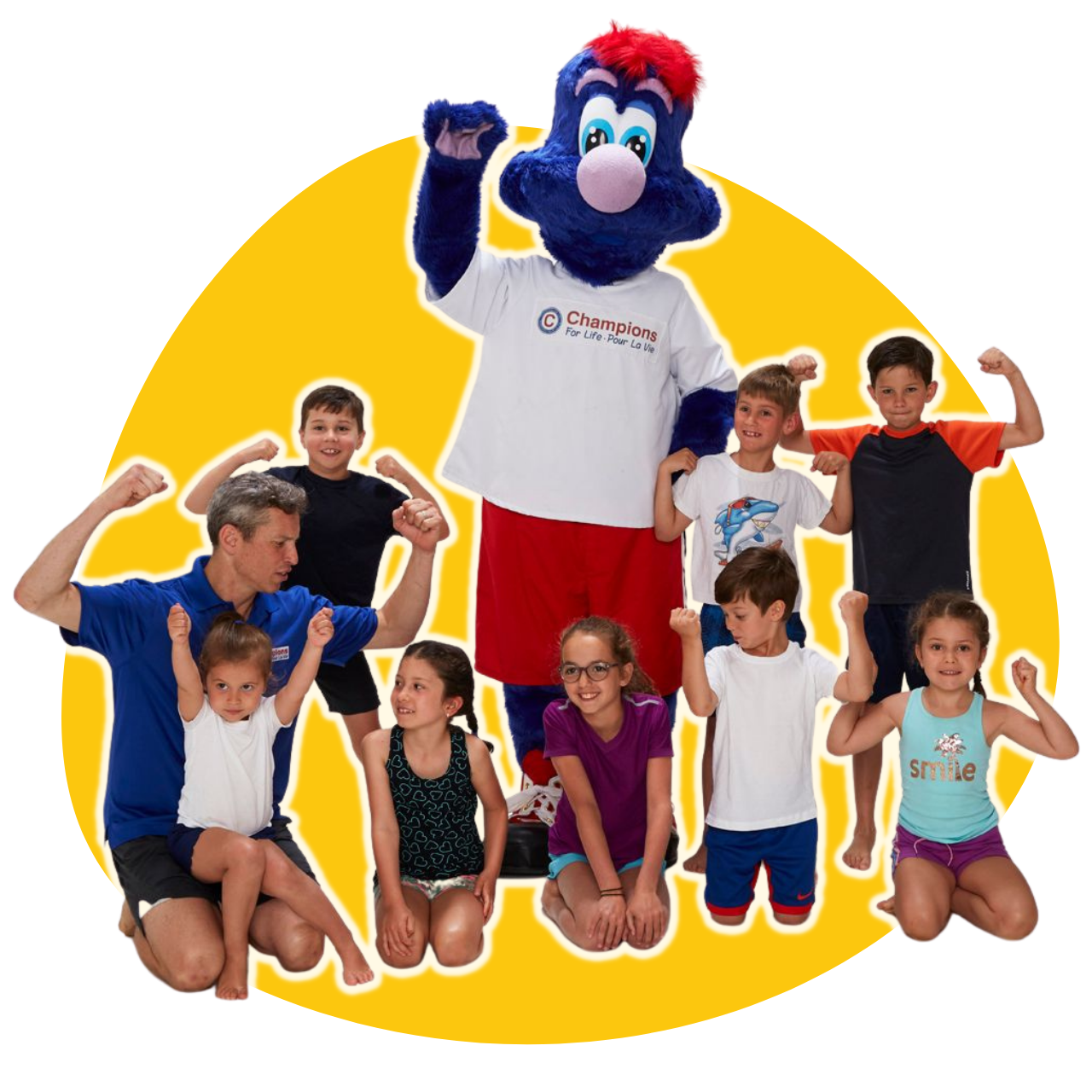
It takes a village to make a difference
We're Partnering for More Active Communities
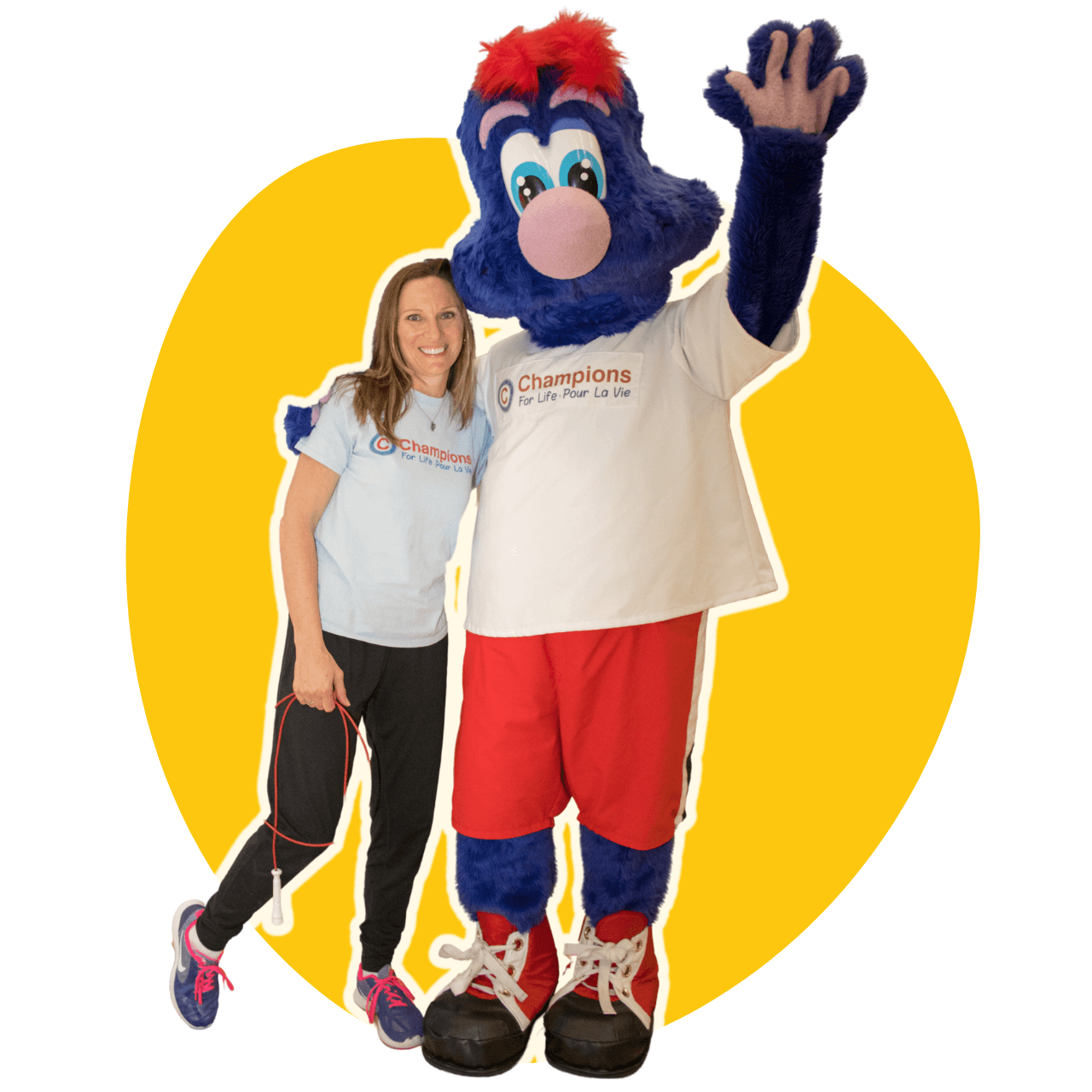
One day. One goal.
Let's Encourage Kids to Be More Active
The Champions for Life Foundation and the Youth Stars Foundation, in collaboration with ParticipACTION, the Borough of Pierrefonds-Roxboro, and West Island Community Shares, are hosting a FREE KAIZEN Kids Carnival at Parc d’À-Ma-Baie.
The KAIZEN Kids Carnival aims to help children develop their physical literacy and provide them with positive experiences around physical activity.
Who is KAIZEN?
KAIZEN is our fun-loving mascot. Kaizen is a Japanese term meaning "change for the better" or "continuous improvement." At Champions for Life, our enthusiastic team is determined to continuously learn, expand our knowledge and connect to our community. In this spirit, we strive to offer children the best physical literacy experiences so they can become active for life!
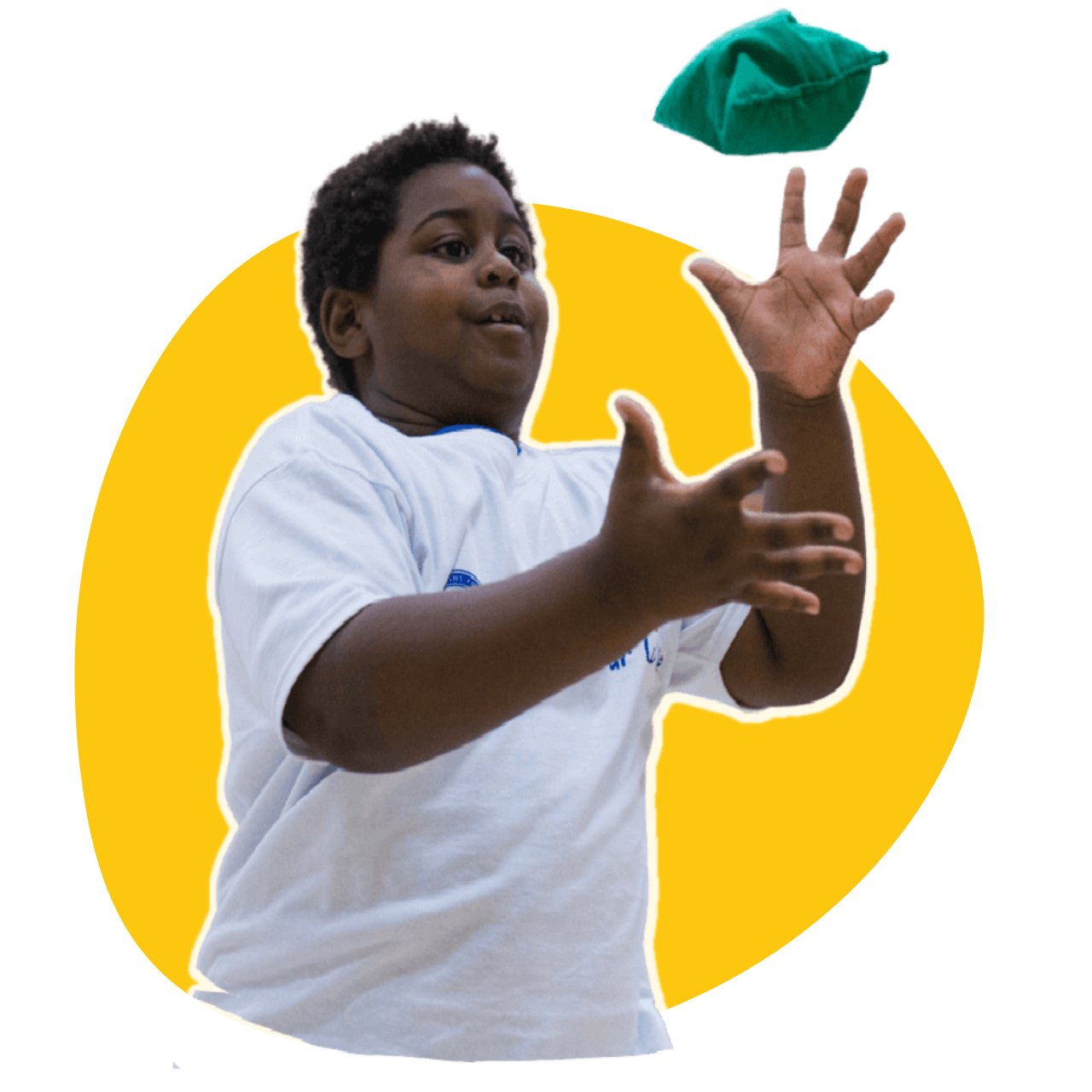
Meaningful movement activities
Keeping Kids In-Motion
The event will include challenge stations encouraging participants to engage in physical activity while learning fundamental movement skills such as skipping, throwing, balance, and dribbling.
Event Details
Schedule
Sunday, June 2nd, 2024
| Time | Events |
|---|---|
| 9:00 - 9:20 | Arrival & Ice-Breaker |
| 9:20 - 9:50 | Opening Ceremony |
| 10:00 - 12:00 | Activity Stations |
| 12:00 - 13:00 | RBC BBQ & Free Play |
| 13:00 - 13:30 | Closing Ceremony |
Location
What to Bring
RUNNING SHOES
The proper footwear will provide the necessary support and protection during the activities.
ACTIVE WEAR
Weather-appropriate activewear that is suitable for sports or other physical activities.
WATER BOTTLE
Staying hydrated during physical activities is crucial for ensuring your child can perform at their best.
Learn More About Physical Literacy
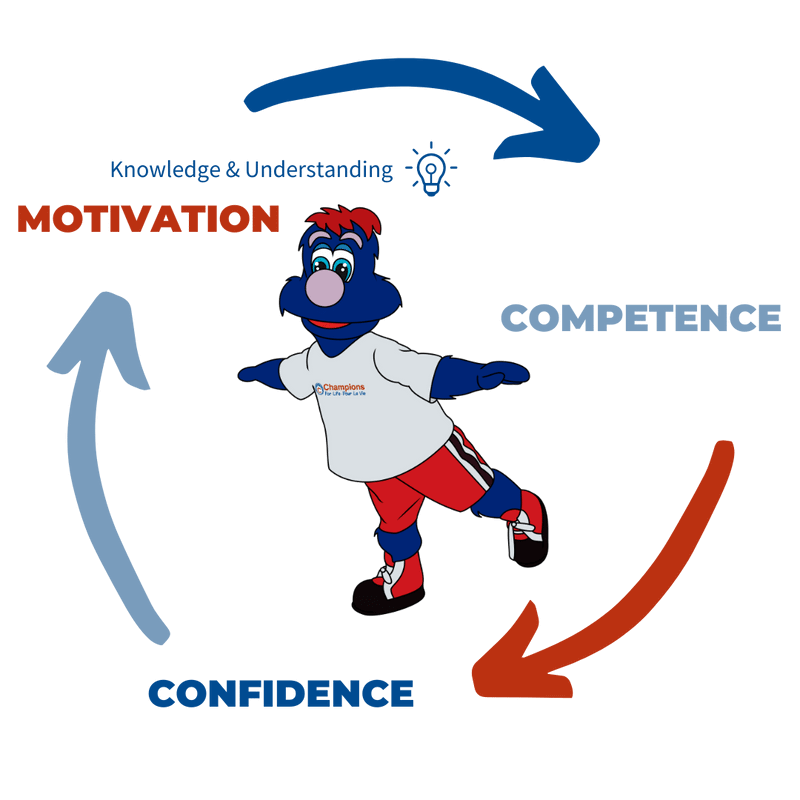
Other Ways to Get Involved
Become an Event Sponsor
Align your business with a meaningful cause. Your sponsorship will help support the future delivery of Champions for Life and Youth Stars programs, which will be offered for free to children in the community – click the link below to download our sponsorship package.
Volunteer Your Time
We rely on the support of volunteers to help make this event a success. Complete our volunteer interest form so we know some basic details about you, and get a general sense of what you're available for during the event.
Media Coverage
Do you, or someone you know, work in media? We have a great story to share and you won't want to miss this captivating community event – click the link below to download our press release and get all the details!
Promote the Event
Help us spread the news of the KAIZEN Kids Carnival by downloading and sharing our vibrant event poster! Help us create a buzz and ensure that no child in the community misses out on this magical day of active fun and learning.




